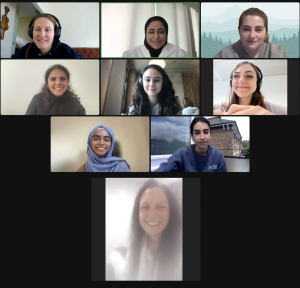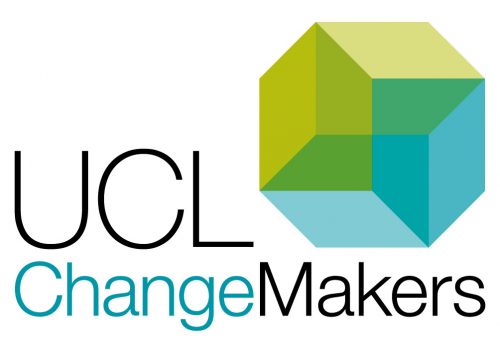The team
Staff lead: Sarah Rowe
PGTA lead: Aisha Alyafei
MSc student leads: Hania Khatib, Magdalena Tomaskova
MSc students: Heema Ajeet Gokani, Alejandro Arguelles Bullon, Ruby Jarvis, Hannah Williams, Zahra Fatima, Melisa Yilmaz
PhD student and Lived experience mentor/Peer support group lead: Natasha Lyons
Department
Division of Psychiatry
What happened?
For our project we wanted to know how effectively we support students with mental health difficulties during their time on our one-year MSc programme. It is important to raise awareness of the accessibility of support on the MSc, particularly to international students or those who may be less familiar with how to navigate mental health support. We also want to promote a supportive and inclusive environment on our MSc. We conducted focus groups with past and current students who have lived experience of mental health difficulties, about the various sources of support we offer on our MSc (e.g. lived experience bursary, lived experience mentor, peer support group), and wider mental health support via the university, and where there may be gaps we need to address. Upon completing our focus groups, some of the key things we found were: 1) students are often aware that there’s mental health support but not the specifics about what is available and how to access these. 2) students often feel overloaded with information and emails at the beginning of the year when this information is provided 3) the processes when applying for support felt lengthy and discouraging, 4) academic support provided by the MSc team e.g. extensions, was viewed as being efficient and helpful, 5) feeling connected to their peers, peer support and social activities had a positive influence on a student’s mental health. These findings informed two separate guidance documents – one for students and one for programmes/departments – on how to support students with mental health difficulties during their studies. We produced a blog to promote the sources of support available via the MSc programme, and a case study for programme teams at UCL.

What advice or encouragement would you give to someone thinking of doing a ChangeMakers project?
To ensure a successful and impactful ChangeMakers project, drafting a plan as early as possible with clear project tasks and deadlines is key. Allocating roles and tasks amongst the project team members and frequent meetings to incorporate everyone’s ideas and perspectives will help enrich the project. Taking notes throughout the project and during meetings helps keep things on track and keeps records of completed tasks. Teamwork is vital. As this project required many individuals to come together and contribute, establishing initial face to face meetings can help instil a sense of connectedness and comfort between team members working together.
